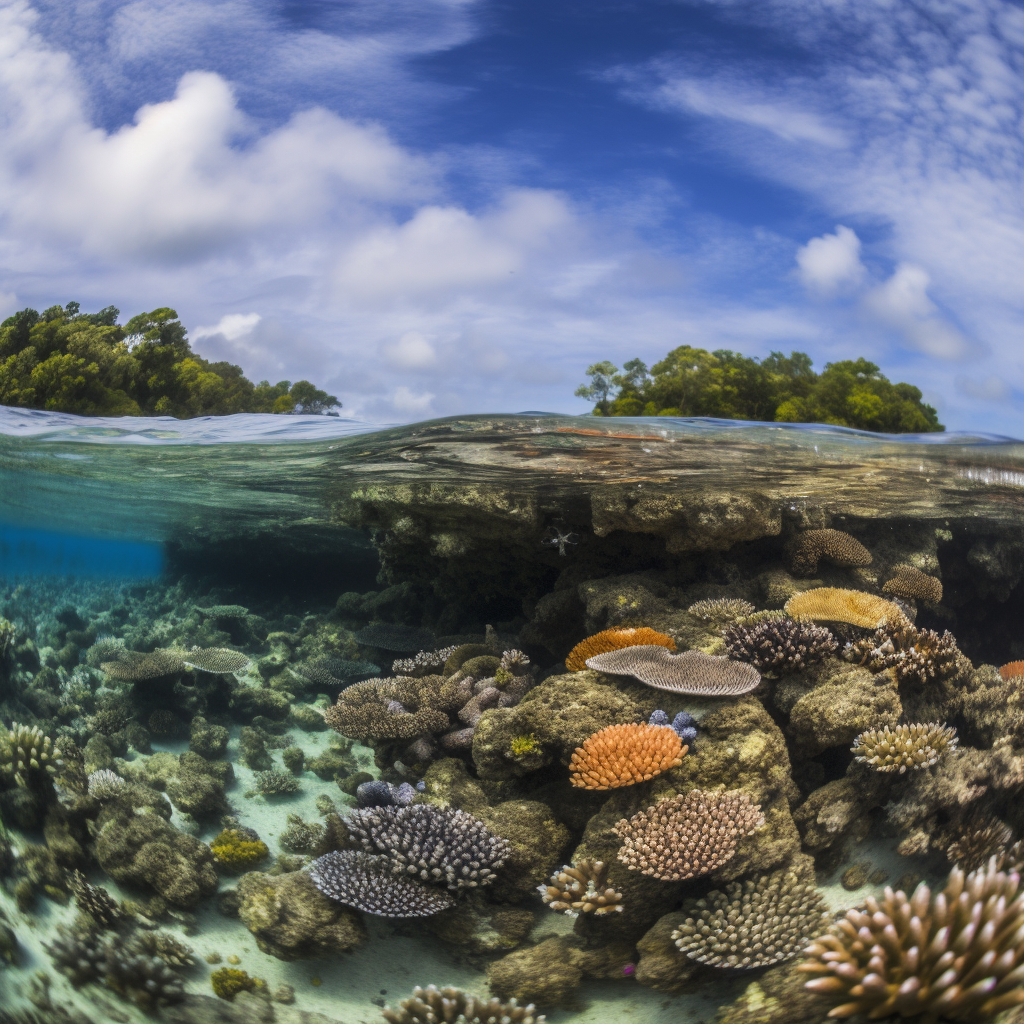July 2, 2024
Ocean Acidification’s Dire Impact on Coral Reefs – Papua New Guinea Study Insights
Book a Demo
The alarming impacts of ocean acidification, caused by elevated levels of carbon dioxide, are becoming increasingly evident in the coral structures of Papua New Guinea. A study by the University of Adelaide has revealed that these coral structures are becoming simpler and less attractive to certain fish species due to acidification.
It is important to note that acidification does not necessarily lower the overall coral coverage. However, it does result in less branched structures, which are less attractive as habitats for certain species of fish. This nuanced understanding of the impacts of acidification came about as the study observed two reefs – one affected by natural acidification due to a nearby volcanic seep, and another that was unaffected. This offered a comparison of the current conditions with those that may become a reality in the future.
The acidification of the oceans poses significant threats not only to marine life but also to human livelihoods that heavily rely on the ocean’s resources. It may lead to worldwide changes in ecological communities, loss of habitats and biodiversity, decreased productivity in fisheries, and negative impacts on marine flora and fauna.
The study, which was published in the Journal of Animal Ecology, sounds a dire warning; the acidification conditions observed could become more common due to human-caused carbon emissions. This would affect not only tropical reefs but also temperate reefs that are home to oysters, mussels, and calcareous algae. Increased levels of carbon dioxide in ocean water decrease the availability of calcium carbonate that corals need for their skeleton structure.
The research suggests that ocean acidification could lead to the loss of key habitats and biodiversity, reduced productivity in fisheries, and negative impacts on a wide range of marine species. This is a reminder of the intricate connections within marine ecosystems and the potential domino effect that can be triggered by changes in one aspect of the ecosystem.
The research team, led by Professor Ivan Nagelkerken, emphasizes the urgent need for a global effort to cut down CO2 emissions to prevent these potential future impacts on marine ecosystems. The ocean’s health is paramount to the planet’s overall health and survival and it is crucial that swift action is taken to mitigate these detrimental effects.
Science4Data is committed to cut through greenwashing and measure real impact. Join the journey to a sustainable future. Your actions matter.



